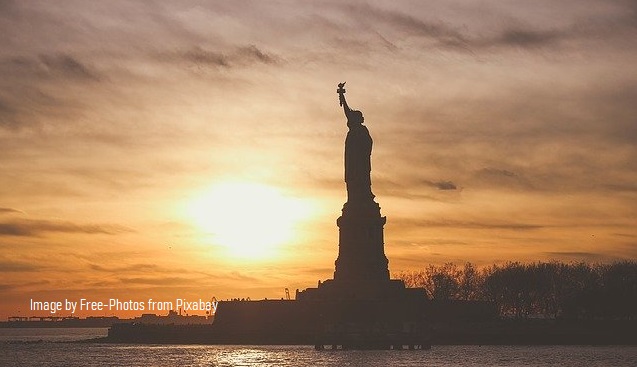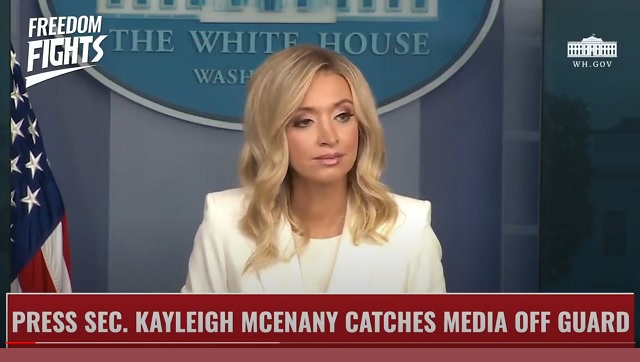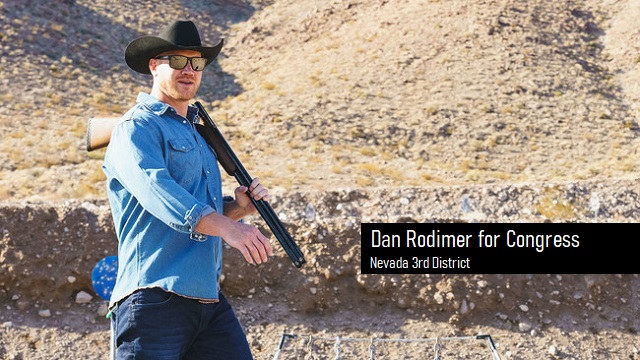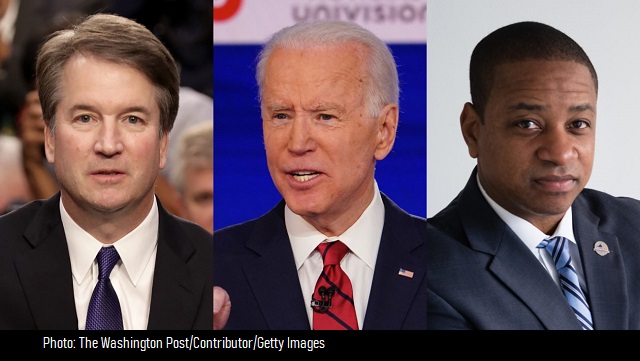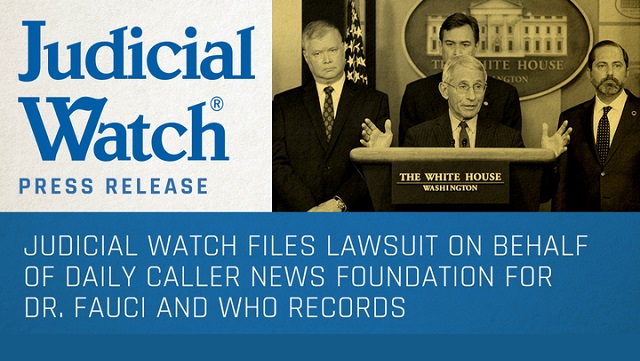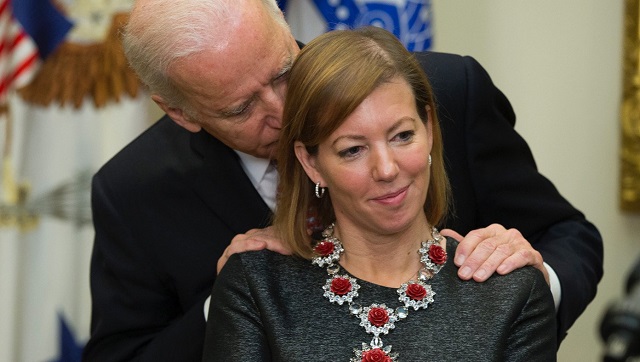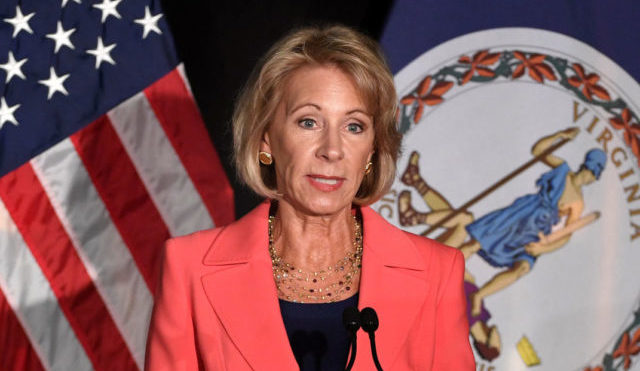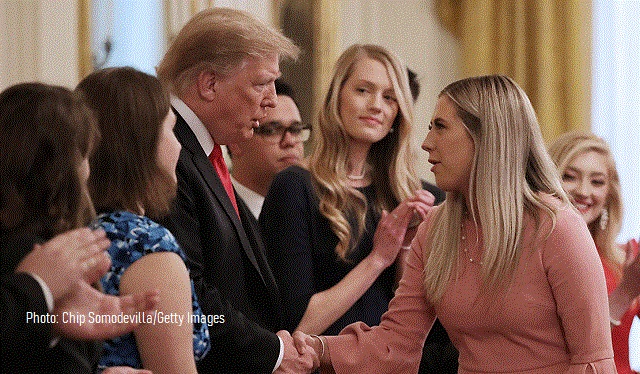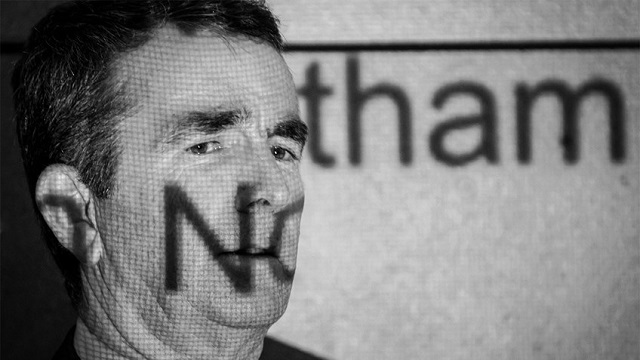
North Carolina Lt. Gov. Dan Forest thinks his state is ready to reopen. “I believe right now many of our counties could start to open back up and you could start to do that in a safe and healthy way,” Forest, a Republican, says.
The lieutenant governor joins The Daily Signal Podcast to propose how America can begin to reopen at a local level to protect both lives and livelihoods. Plus, he discusses what he experienced traveling through North Carolina the past several weeks, and how he’s been helping those struggling. Listen to the podcast below or read the lightly edited transcript.
We also cover these stories:
- The Centers for Disease Control and Prevention predicts coronavirus-related deaths will reach 3,000 per day by June 1.
- House GOP members are investigating China’s influence on U.S. university research of COVID-19.
- The Supreme Court broadcasts teleconference arguments, allowing the public to listen in real time for the first time ever.
The Daily Signal podcast is available on Ricochet, Apple Podcasts, Pippa, Google Play, or Stitcher. All of our podcasts can be found at DailySignal.com/podcasts. If you like what you hear, please leave a review. You can also leave us a message at 202-608-6205 or write us at letters@dailysignal.com. Enjoy the show!
In these trying times, we must turn to the greatest document in the history of the world to promise freedom and opportunity to its citizens for guidance. Find out more now >>
Virginia Allen: I am joined by North Carolina Lt. Gov. Dan Forest. Lieutenant governor, thank you so much for being here.
Lt. Gov. Dan Forest: Virginia, thanks for allowing me to.
Allen: You have made it clear that your greatest concern during CCOVID-19 is helping the people of North Carolina. You’ve personally donated over $200,000 to the people in your state during the pandemic. Can you tell me about some of those people that you’ve helped?
Forest: Well, it was obvious, Virginia, right out of the gate when things started shutting down, that this was going to have devastating effects to people’s livelihoods, to a lot of business owners who, as you well know, and I’m sure you’ve covered them, have poured their life savings and their heart and soul into growing their business, maybe even over decades.
And then you can see how fragile things actually are and how quickly things can turn the wrong direction.
What we decided, really at the beginning, was … we were going to just start spending our time helping people across the state, and that’s what we did.
My wife Alice and I, we’ve spent the last six weeks traveling around the state and just trying to help people where we can.
Sometimes it’s helping a restaurant owner, write him a check, and help them to make their payroll or pay their rent or keep their lights on or even keep their employees fed.
Sometimes their employees have been furloughed and these restaurants are still trying to feed them and their families and it just goes on and on.
I know you’ve heard all the stories, but it’s truly devastating out there. And there’s two sides to this virus, there’s the virus side, which is devastating to a lot of people, and then there’s the economic side, which is devastating.
Allen: Last week you learned about a retired Army officer who is struggling to pay his bills and he was considering selling something very special and valuable to him. Can you tell me a little bit about that Army officer?
Forest: We actually found out about this online and the Bronze Star recipient, he was trying to help his wife keep her business afloat. So he posted online that he wanted to sell his Bronze Star to the highest bidder, which is sad enough in and of itself.
So we contacted him and said, “Listen, we will come and purchase your bronze star from you on one condition: that we can give it back to you at the same time.”
So last week … I went to Winston-Salem and met him and his wife and daughter and purchased his Bronze Star, and then turned around and handed it back to him.
Obviously, people that have put their lives on the line for our nation and earned metals shouldn’t have to be selling their metals in a time of crisis, but like a lot of people, they’ve fallen through the cracks on the bailout programs, the stimulus programs, and all those kinds of things, as you well know.
So, again, just trying to do a little part to help people out, to let people know you care. I think that’s [important] during times like this.
Allen: It’s so important. It really is. And those are the stories I think that just are giving all of us hope right now. To be reminding ourselves that, all right, when you turn on the news it might look bleak, but then, on the other hand, we’re seeing so much generosity of individuals.
I do just want to take a few minutes and talk a little bit about that issue of not only protecting lives but also livelihoods, like you mentioned.
You’ve made it very clear that you think North Carolina needs to begin reopening the state once again, and, of course, this is a big concern as well of The Heritage Foundation … we’ve been having those same discussions with the National Coronavirus Recovery Commission.
What plan are you advocating for in North Carolina to begin reopening the economy?
Forest: Well, the president laid out two platforms, one was state by state and the other was the states have the ability to open up county by county.
Our state is very diverse. Obviously, we have several large cities. The impact of the virus has been felt in those cities in particular, but not quite as heavily in many of the other counties. So we still have many counties that don’t have any deaths.
We have many counties who, I would suppose, if we were getting the correct data from our state, that we would find out that the people that have had the virus have recovered from it.
So the approach that I’ve suggested is the one that the president suggested, too, you can go county by county and open up.
We’re the second-most rural state in the United States of America, even though we have 10.5 million people, and we’re the eighth-largest state. So very diverse in nature and geography and so forth.
I believe right now many of our counties could start to open back up and you could start to do that in a safe and healthy way.
And, Virginia, I’ve said it from the beginning, this is the United States of America, we can protect lives and livelihoods at the same time. And you’ve seen governors across the country doing this.
You have these kind of two schools going on. You have governors who really have the perspective of saying we need to get the economy going, and we’re going to protect the most vulnerable. And then you have those governors who say we’ve got to lock everything down until there’s no other case of coronavirus left—and that’s not a reasonable approach for our country.
Allen: In your mind, how can North Carolina really balance both public health and reopening the economy? Is that kind of held within that county-by-county plan?
Forest: I think you just have to look at the facts here. The statistics line up, really, across the world. We know who the people are that are actually at real risk of this virus. It is the people that are the elderly and those that have immune issues already.
So people that are at risk fall into those categories, and so you can protect those people by quarantining them, having them stay at home for extra periods of time, creating shopping hours for those folks that don’t interfere with other people, creating times at restaurants where those people could actually go and get their food without coming into contact. All these kinds of things.
We know the demographics of the people that are hospitalized and the people that are dying. And I think we need to let the healthy folks get back to their livelihoods and allow freedom to reign again in America.
Personal responsibility and freedom is really important, but the government picking winners and losers in the economy based on their own preferences is, I think, a pretty bad thing.
You look at small-town America, a lot of these shops that exist in small towns have just a handful of visitors a day and you’re saying they can’t remain clean and they can’t social distance, but you’re going to close them down because they’re not essential.
I think every business is able to set those rules for themselves, and then if they don’t, then you come in with the stick. But I think the government should offer the carrot first and assume that personal responsibility is going to rule the day in America.
Allen: When the nation shut down about seven weeks ago, there was still a lot that we didn’t know about COVID-19. What have we learned about the coronavirus since the lockdown? And has that information affected your views?
Forest: I think everybody was probably in the same position. A couple months ago people were fearful and the statistics that people were presuming were 2 million people were going to die in the United States and this thing was going to be devastating.
So from a political leader’s perspective, I don’t blame anybody for any of the decisions they made with a lack of information. I think that is kind of the reactionary approach that people take when mayhem is on the line.
I think what you’ve seen is, again, you have seen the statistics start to tell us who the people are that are being hospitalized, and who the people are that are dying from this, and we know what categories they fit into.
So extra measures taken to test those population. Extra measures taken to screen people going in and out of those populations, of things like nursing homes and in places like that. And extra precautions taken by the business class of folks when they start to reopen again to continue to protect that population.
So we know a lot now. The statistics are really starting to show us who the vulnerable are and who the vulnerable are not. And we can go on about life and livelihood while protecting people at the same time.
Allen: How do you think that the president has handled the situation with COVID-19? And have you and the folks of North Carolina been working with the Trump administration on this?
Forest: Well, I have conversations, obviously, separately from our governor. Our governor is a different party. We don’t really communicate much, which is too bad. I wish that was the case, but it’s just not here.
And so yes, I’ve had conversations with the administration. I asked them a lot of questions. I get feedback. They’re very responsive.
I think the president actually has shown amazing restraint through all this. I think the first thing is he and his team had the foresight to close down travel from China as early as they possibly knew about this, while China was doing the opposite and sending people around the world still.
The president said, “Hey, let’s shut that down.” As you well know, and I’m sure you’ve talked about it a lot, he got criticized heavily for doing that, but that was probably a great major step.
Then after that, Virginia, I think he’s really shown amazing restraint. He has allowed federalism to do its job, allowing the governors to make the decisions for their state, and I think that is really the way it should be.
Again, just like I believe there’s not a one-size-fits-all approach for our counties across our state, there’s not a one-size-fits-all approach for the United States of America either.
So he laid out a framework and said, “Here’s a healthy framework for moving forward and you guys go make the choices.”
Allen: Now we are beginning to see different states, like you say, take different actions.
You know North Carolina has about 11,000 cases compared with a state like Georgia that has over 28,000 or Texas that has over 30,000, but the governors of those states and many others have already begun to reopen their economies.
Do you think that this is wisdom? Should many, many states now be reopening specifically across the South?
Forest: I think they should be. I think we’re doing incredibly well compared to other states our size. If you line us up against the top 10 states, we’re at the bottom of the list for cases and deaths and so forth. So we are doing extremely well in that category.
I think we are in a position to pass through the first gates, and we are not receiving the data from the state that we should be receiving that other states are producing.
I’ve been asking for that for a solid six weeks now. We need to know how many people have recovered from this.
Continuing to count the number of cases and watching that hockey stick go up as you test more and more and more, you’re going to continue to have more cases. You’re going to have more cases until you have a reliable vaccine for this thing, in fact.
So how many people are actively infected with this virus right now is a really important number. How many people have recovered, obviously, is an important number.
But also, we’ve asked for the data surrounding people that have been hospitalized. What’s the exact number of people hospitalized? Not the daily number because that’s not as important as how many people.
And then on the people that have been hospitalized or the people that have died, what’s their exact age, not within a broad range category? What’s their exact age and did they have other complications associated with their situation as well?
They’re just basic questions to help give the kind of data that we need to make clear, intelligent choices in our state about how to protect people and how to move forward at the same time.
Allen: Yeah, absolutely. Well, summer’s right around the corner and, of course, many parts of North Carolina and states all across the country really depend on tourism during the summer to fuel a lot of the business. Are you optimistic that we can reopen our economy in time for summer vacations and trips?
Forest: I’m very optimistic. In fact, I think the people of North Carolina are ready for it. I think the people of North Carolina have done a phenomenal job of making great sacrifices to protect their state and to protect their neighbors and do all the right things. And we’ve seen that across our state.
I happened to be down east a couple of days ago, I guess it was on Friday, Saturday, and there were hundreds of boats out in the water. People were out there, the sun was shining, and it was a beautiful day. It was a warm day.
There are so many people that are just eager to get back about life right now, and I don’t think you can really hold them down. That’s why leadership is tough during these things.
It’s very difficult, and you have these two schools of leadership, one that is kind of the police state that’s going to try to tell everybody what to do every second, but the government is here to protect us, but not to run and control our lives. And that’s really, really important.
We have to make sure that when we come through this thing, we learn a lot of lessons.
I think the biggest lesson that we’re going to learn through this is how do we protect our Constitution and our constitutional freedoms as we move out of this and make sure that we don’t move into a police state mentality every time something starts to go down in our country?
So that’s going to be a very tough one to navigate and I’m sure it will play out in the elections coming up in November.
Allen: Absolutely. Well, you’ve been serving as lieutenant governor since 2013. You have certainly witnessed a lot of policy and political changes over the past seven years. From where you sit in a place of leadership, how have you seen America change over the past several years?
Forest: Oh, boy, I think it’s actually been quite drastic. I think that this whole notion of identity politics and dividing people into identity politics subgroups out there and then using fear to divide and separate is a dangerous thing. I think we’ve seen that over the last handful of years especially.
I’m hoping that one of the things that usually happens during a time of disaster, whether it’s a natural disaster or something like this, is people come together and they get unified.
I think that we have a lot of work to do in America to unify people and unite people, and we even see different schools during a pandemic.
You kind of have those that say, “At all costs, stay home and stay locked down.” And they cross all political spectrums and ideologies.
And then you have people that say, “Let’s get back to work, let’s get the economy going.” And they cross all spectrums and ideologies.
So it’s not just a right-versus-left kind of thing. So it’d be very interesting to see how that unity plays out as we go forward.
I think we can have empathy and compassion for both the sides of this challenge that I mentioned earlier. And we should have empathy and compassion for it.
Again, I think protecting our freedoms based on our constitutional ideas is the most important thing we can do going forward.
Allen: Yeah, absolutely. What policy issues do you feel you’ve been most proud to play a role in implementing in North Carolina?
Forest: We do a lot of policy work behind the scenes as lieutenant governor. I preside over the Senate. I don’t have the opportunity to actually put my name on a lot of policy, but we have a lot of friends in the House, a lot of friends in the Senate, and we write a lot of policy. So it’s really across the board.
I spend a lot of my time in education. So I’m really proud of a lot of things we’re doing in education to move to competency-based education.
We’re the first state in the nation to have every single classroom connected to high-speed broadband and providing the kinds of access and technology, especially to people who haven’t had it before across our state, that’s been important to me.
Human trafficking, we’ve spent a lot of time on the human trafficking issue. We were No. 6 in the nation for human trafficking in our country, on the bad side, not on the good side. So we have a lot of work to do there, and we passed some really good bills to help push that forward.
I think that I could go on, but there’s a lot of things that we do at the small level as lieutenant governor that I’m very proud of and we have a great team.
Allen: Lieutenant governor, we certainly thank you for your service to our country and we just really appreciate your time today.
Forest: Thank you, Virginia, for having me on. And thanks to Heritage for all the great work you do to protect freedom in our country.
PODCAST BY
Virginia Allen is a news producer for The Daily Signal. She is the co-host of The Daily Signal Podcast and Problematic Women. Send an email to Virginia. Twitter: .
RELATED ARTICLES:
Under This Doctor’s Care, Most COVID-19 Patients Are Recovering. Here’s His Unusual Approach.
Amid COVID-19, Illinois Seeks Federal Bailout of Fiscal Crisis ‘Decades in the Making’
3 Initiatives Feed Health Care Workers in Fight Against COVID-19
How to Keep the Free World From Becoming a Suburb of Beijing
A Note for our Readers:
This is a critical year in the history of our country. With the country polarized and divided on a number of issues and with roughly half of the country clamoring for increased government control—over health care, socialism, increased regulations, and open borders—we must turn to America’s founding for the answers on how best to proceed into the future.
The Heritage Foundation has compiled input from more than 100 constitutional scholars and legal experts into the country’s most thorough and compelling review of the freedoms promised to us within the United States Constitution into a free digital guide called Heritage’s Guide to the Constitution.
They’re making this guide available to all readers of The Daily Signal for free today!
EDITORS NOTE: This Daily Signal column is republished with permission. ©All rights reserved.
